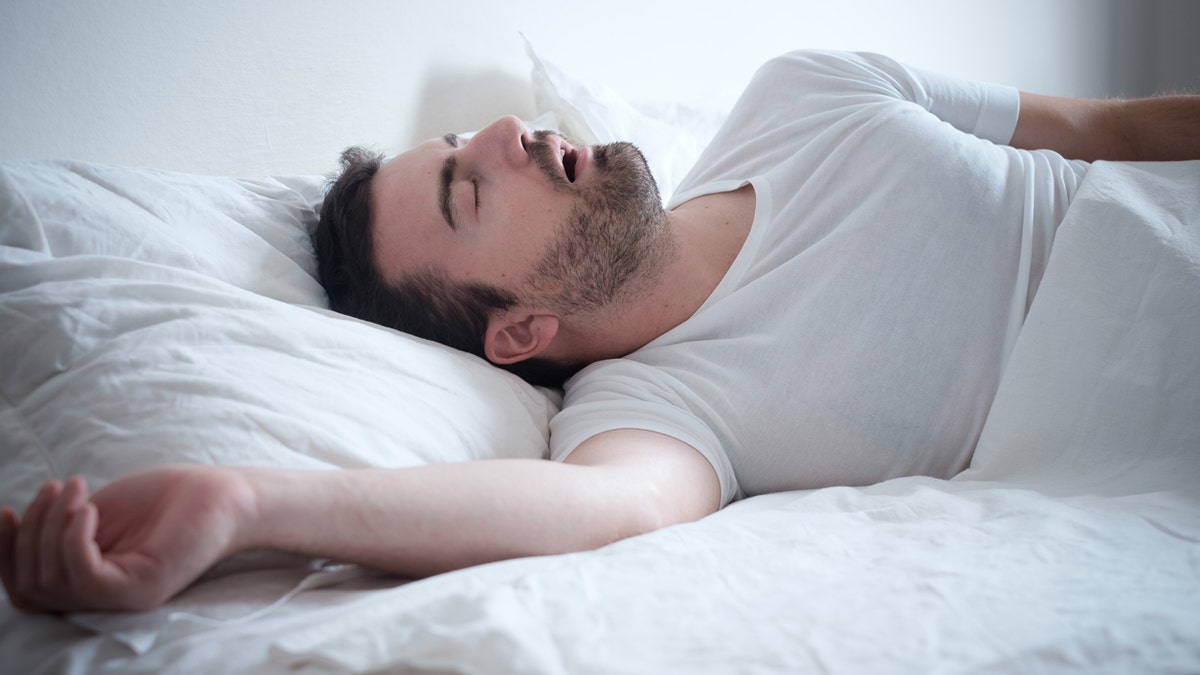
If you can't sleep as much as you need during the week, you may be able to make up for it on the weekends. (iStock)
Rising temperatures caused by climate change seem to be disrupting America’s sleep patterns, according to a new study.
A temperature increase of 1.8 degrees Fahrenheit causes three bad nights of sleep per 100 individuals per month. Across the United States, that amounts to 9 million sleepless nights a month and 110 million nights each year.
“Our study represents the largest ever investigation of the relationship between sleep and ambient temperature,” the authors wrote, “and provides the first evidence that climate change may disrupt human sleep.”
BRITISH GYM INTRODUCES 'NAPERCISE,' WHERE PEOPLE SLEEP INSTEAD OF WORK OUT
Scientists have long known that a comfortable body temperature is key for a good night’s sleep. But this research is the first to find a correlation between hotter-than-usual nights and an increase in self-reported sleeplessness. The findings were published May 26 in Scientific Advances.
Nick Obradovich, lead author on the study, was driven to explore the relation between the two after a record heat wave tore through Southern California in 2015. Obradovich, who was a graduate student at the time, barely slept during the six-day stretch of 100-degree nights. He noticed his friends and classmates had also become way more tired and sluggish.
5 FOODS TO BOOST YOUR ENERGY IF YOU GOT A BAD NIGHT'S SLEEP
To figure out if there was any connection, Obradovich and three other researchers collected data from the Centers for Disease Control and Prevention (CDC) of 765,000 Americans contacted between 2002 and 2011. The CDC randomly conducts public health surveys in which they call people and ask things like whether they wear their seatbelt, how easily they sunburn and how many nights of insufficient sleep they’ve had in the past 30 days.
The researchers then took this data and cross-referenced it with local weather station records to see if the respondents had experienced unusual nighttime temperatures. They had.
Additionally, the study found that low-income families who can’t afford air conditioners and senior citizens whose bodies are more susceptible to heat stress were affected the worst.
FOLLOW US ON FACEBOOK FOR MORE FOX LIFESTYLE NEWS
Poor sleep has been connected to a magnitude of ills that include a weaker immune system, decreased brain function, obesity, cancer and heart disease.
“Sleep is just one of many other factors that ultimately combine into the broad perspective on human well-being,” Obradovich told the Huffington Post. “Take into consideration that temperature may affect exercise patterns and mood, too, and you get this cornucopia of factors that, when we combine them all, you realize climate is going to really affect human behavior.”








































